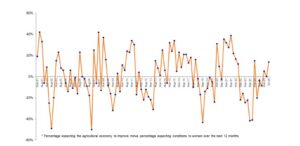
An international study has revealed that walking for longer, uninterrupted periods is more beneficial for cardiovascular health than shorter, sporadic walks. Conducted by researchers from the University of Sydney and the Universidad Europea in Spain, the findings are published in the Annals of Internal Medicine. The research highlights the importance of not just the number of steps taken, but also how those steps are accumulated.
The study analyzed data from 33,560 adults aged between 40 and 79 years, all of whom walked fewer than 8,000 steps daily and had no prior history of cardiovascular disease or cancer. Participants wore research wristbands for a week, allowing for precise measurement of their physical activity patterns. Over an average follow-up period of eight years, researchers observed the health outcomes of these individuals.
According to Professor Emmanuel Stamatakis, the senior author and Director of the Mackenzie Wearables Research Hub, many focus solely on the total number of steps. He stated, “We tend to place all the emphasis on the number of steps or the total amount of walking but neglect the crucial role of patterns, for example ‘how’ walking is done.” The study found that individuals who engaged in longer walking sessions of at least 10-15 minutes at a time exhibited a lower risk of mortality and cardiovascular events, such as heart attacks and strokes.
Co-lead author Dr. Borja del Pozo from the Universidad Europea noted, “Our research shows that simple changes can make all the difference to your health. If you walk a little, set aside some time to walk more often and in longer sessions. Such small changes can have a big impact.” This suggests that even those who are largely inactive can enhance their heart health by adjusting their walking habits.
The implications of this study encourage individuals to reconsider their walking routines. Rather than striving for the often-cited goal of 10,000 steps per day, the findings indicate that incorporating longer, more focused walks can be more beneficial, especially for those who are not typically active.
This research was funded by the National Heart Foundation and a grant from the National Health and Medical Research Council. Additionally, Professor Stamatakis serves as a paid consultant for Complement One, a commercial entity based in the United States that focuses on physical activity.
The study utilized data from the UK Biobank, a comprehensive biomedical resource containing anonymized health, lifestyle, and genetic information from approximately half a million participants across the UK. Opened for research use in April 2012, the UK Biobank has since approved over 30,000 researchers from 100 countries, resulting in more than 5,000 peer-reviewed papers published using its data.
This research underscores the potential health benefits of longer walking sessions, promoting a shift in focus from merely counting steps to understanding the quality and duration of physical activity. By making small adjustments to walking habits, individuals may significantly enhance their cardiovascular health and overall well-being.







